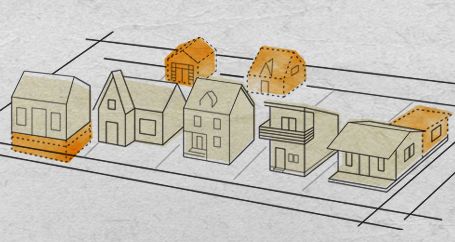
Answer Why are the owners selling? Consider this the first of many questions on your house-viewing checklist. The answer may not reveal all of a home’s issues, but it may help you craft a better offer. A seller invested in a quick move due to a job transfer may be more willing to negotiate on price than one who has more time and simply wants to downsize, for example. The answer could also reveal downsides to the home or location — the noisy neighbors, troubled schools.
By the time you go to an open house, your agent should have already filled you in on essential information like the age of the house, how long it’s been on the market, when the sellers bought it and what they paid.
Here are some more questions to ask when you’re actually getting your first in-person view of a potential new home:
- Are you the sellers’ agent? The sellers themselves are typically not at an open house. The person running the open house may be their listing agent or may be an assistant or another agent — someone who is not as knowledgeable and whose answers may need double checking.
- What comes with the house? Don’t assume that the blinds, light fixtures or appliances are included. When in doubt, ask — and get the answer in writing. Inquire about light fixtures, appliances, window treatments, built-in sound systems and unattached outdoor items (play equipment, sheds, fountains).
- What issues does this house have? Sellers may be required to disclose certain problems, but the requirement varies widely by state. The list usually includes liens against the property, the presence of lead paint and if the home is in a historic district. Some but not all states require disclosure of issues like asbestos, natural hazards (for example, is the home in a floodplain or earthquake liquefaction zone?), nearby agricultural operations that may foul the air or water, or a death in the home. It pays to ask about any concerns (and to get a thorough home inspection).
- How old are the roof, foundation, plumbing and electrical and HVAC systems? Most of a home’s structural and mechanical systems have expiration dates. Pay special attention to the ones that are costly to repair. Roofs, for example, typically need replacing after 30 years, and a new one will cost thousands of dollars. Ask about the age of the water heater and appliances, too, so you know going in if you’ll need to replace them soon.
- What renovations have been made? Not all home improvements “improve” a home or were completed to code. Get details on work that’s been done, whether it was done by a licensed contractor or professional and if the work was permitted by the city. (You can also double-check whether permits were issued by the city.)
- How much are the utilities? Electricity bills for AC in hot climates add up. Ask about average expenses for water, sewer, electricity, gas and trash collection. Confirm any HOA fees and assessments.
- Where are the outlets, how is the cell reception and who provides broadband in the area? Electronics are more important than ever. You’ll want to know if there are enough outlets, if they’re in the right places and if you need to stand near an upstairs window to get more than a bar of cell service. Ask which internet service providers serve the area and whether you can choose fiber optic, cable or DSL.
- Are there problems in the neighborhood? Ask directly about nuisance neighbors, crime, traffic and speeding cars, noise and barking dogs. While you’re at it, check in about schools, parks and other quality-of-life issues.
- What is parking like? In city neighborhoods especially, you’ll want to know going in what the rules are about parking on the street and guest parking. These issues can involve both cost and convenience.
- What do you love about the house and neighborhood? The seller may like things about the home or area that you hadn’t considered. And people love to brag about selling points. It’s a good way to leave a positive impression.
Farmers Home Insurance
Find out why home insurance from Farmers is a smart choice.
The information contained in this page is provided for general informational purposes only. The information is provided by Farmers® and while we endeavor to keep the information up to date and correct, we make no representations or warranties of any kind, express or implied, about the completeness, accuracy, reliability, suitability or availability with respect to this article or the information, products, services or related graphics, if any, contained in this article for any purpose. The information is not meant as professional or expert advice, and any reliance you place on such information is therefore strictly at your own risk.
Related articles



